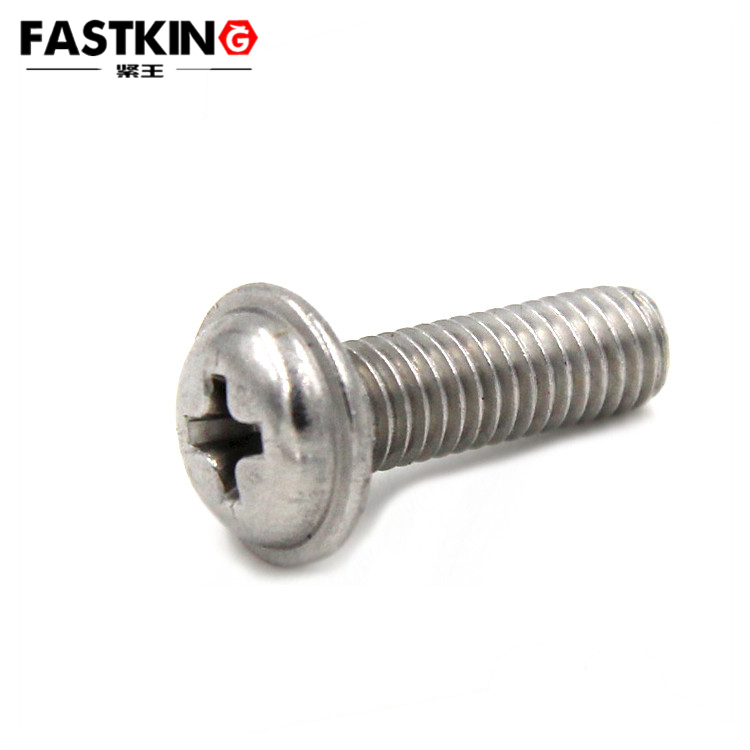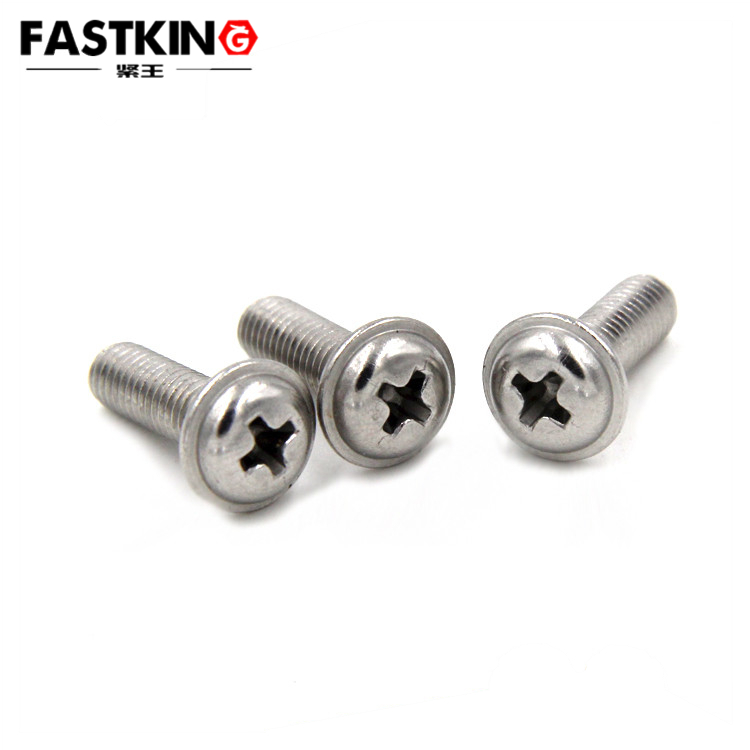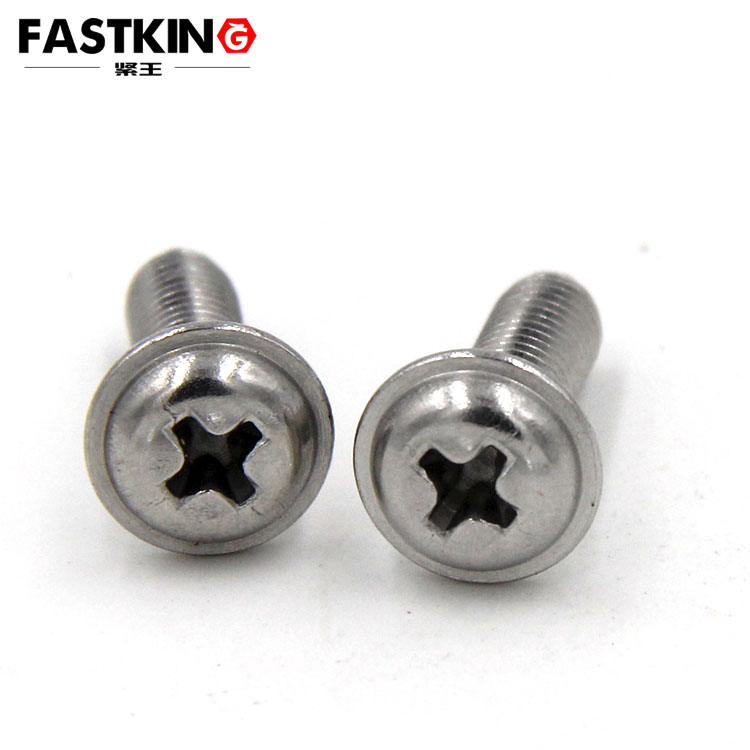Introduction
Round head cross-head socket screws with washer (also known as "washer head screws") are specialized fasteners designed with a rounded head and an integrated washer-like structure between the head and the screw shaft. This unique design provides a larger contact area during fastening, reducing damage to the surface of the connected parts. The cross-head slot allows for easy operation with a standard cross-head screwdriver, making it ideal for applications where the screw head needs to be concealed or the surface protected.

Core Advantages of Round Head Cross-Head Socket Screws
Made from high-quality carbon steel or stainless steel, these screws undergo heat treatment and surface finishing processes to achieve excellent mechanical properties and corrosion resistance. With a hardness of HRC28-32, they offer sufficient strength and appropriate toughness. The rounded head design ensures a smooth and aesthetically pleasing surface after fastening, while the cross-head slot is compatible with standard tools.
In terms of mechanical performance, round head cross-head socket screws support a maximum strength grade of 8.8, meeting the fastening requirements of most general-purpose equipment. The integrated washer design effectively distributes the fastening pressure, preventing surface damage to the fastened parts and enhancing anti-loosening performance.
The screws feature a standard cross-head slot, allowing for easy operation with a common cross-head screwdriver. The unique rounded head not only looks aesthetically pleasing but also prevents scratches, enhancing safety during use. Standardized thread specifications and dimensions ensure good interchangeability and compatibility.
Proper Use of Round Head Cross-Head Socket Screws
When installing round head cross-head socket screws, ensure that the threaded holes are clean and undamaged. Select an appropriate cross-head screwdriver that matches the slot perfectly. Pay attention to the screw orientation to ensure the washer is flat against the surface of the fastened part. During tightening, apply appropriate axial pressure to prevent slipping and damage to the slot.

For routine maintenance, regularly inspect the screw's fastening status and retighten if necessary. Check the threads and washer for any damage, and replace the screw promptly if any issues are found. When storing, keep the screws in a dry, ventilated area, avoiding direct sunlight and chemical corrosion.
Common issues include slot damage and stripped threads. These can be identified by visual inspection and checking the fastening status. Damaged screws should be replaced promptly to avoid compromising equipment operation.
Typical Applications of Round Head Cross-Head Socket Screws
In the furniture manufacturing sector, round head cross-head socket screws are widely used for assembling panel furniture, office furniture, and kitchen/bathroom equipment. Their aesthetically pleasing appearance and ease of operation make them highly favored by manufacturers. In electrical assembly, they are commonly used for fixing household appliances, electronic devices, and lighting fixtures, meeting the demands of mass production.
In mechanical equipment systems, these screws are used for fastening non-load-bearing parts such as instrument panels, protective covers, and enclosures. Their easy installation features improve maintenance efficiency. In the construction industry, they are applied in the installation of decorative panels, window and door fittings, and pipe supports, providing convenience for construction.

Conclusion
Round head cross-head socket screws have become a benchmark in the general fastening field due to their outstanding performance and broad applicability. As smart manufacturing continues to evolve, these screws will continue to play a crucial role in emerging fields such as customized furniture and smart home technology, providing a solid guarantee for convenient assembly.
